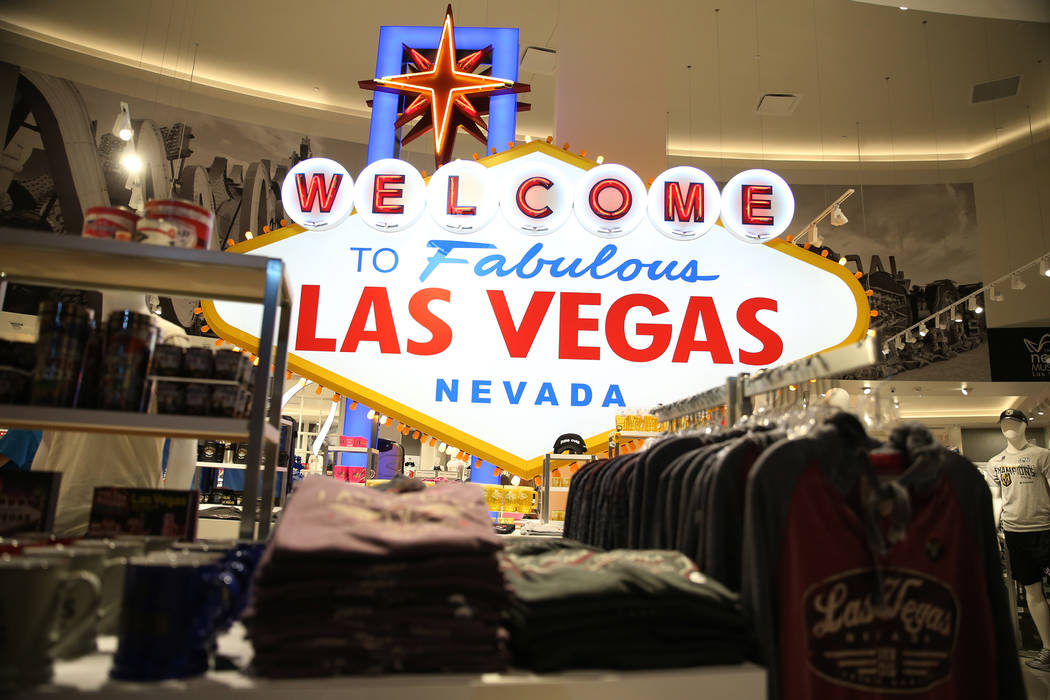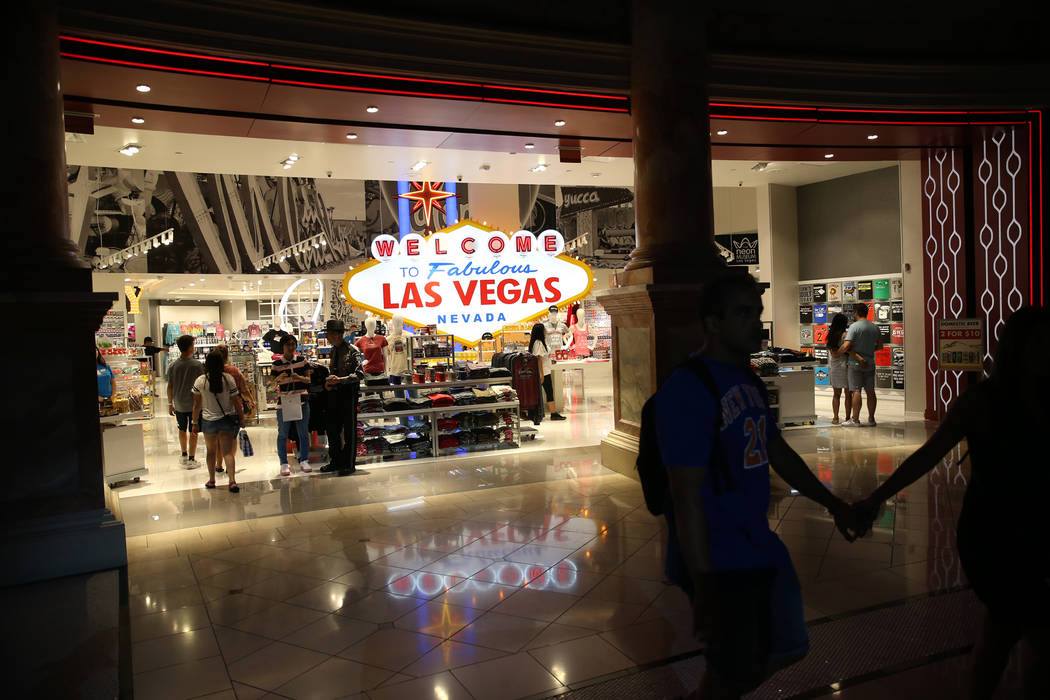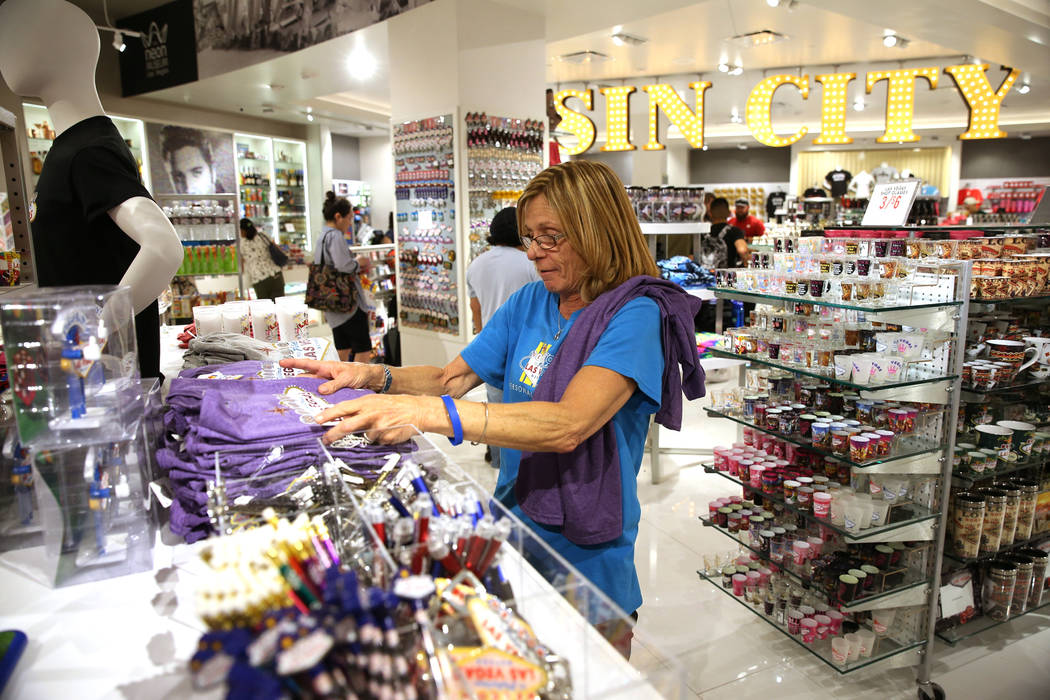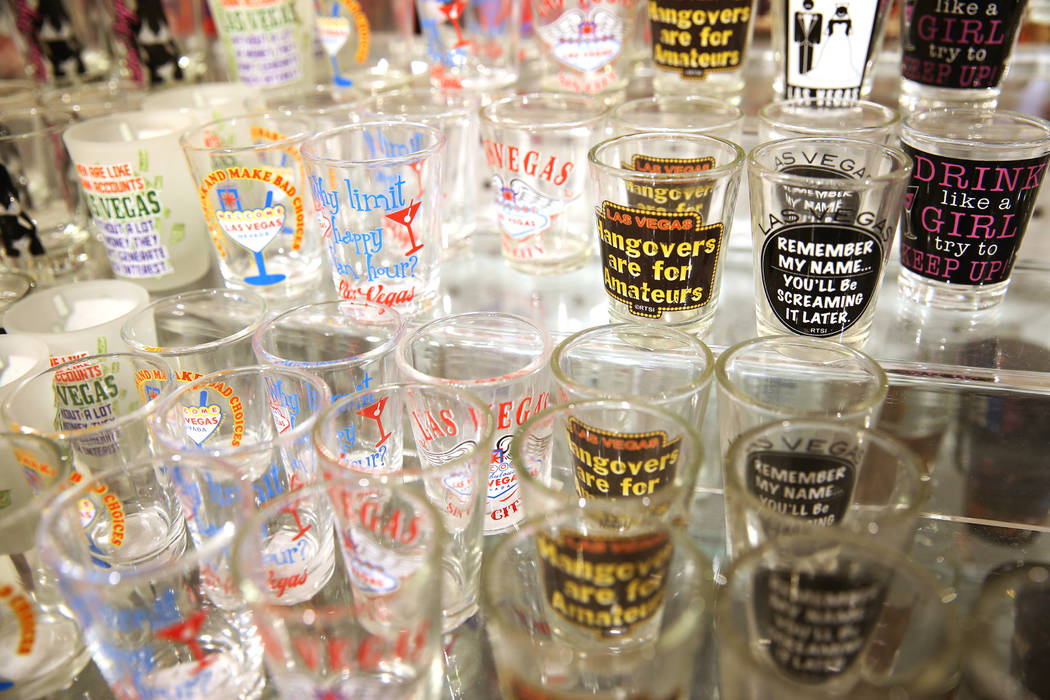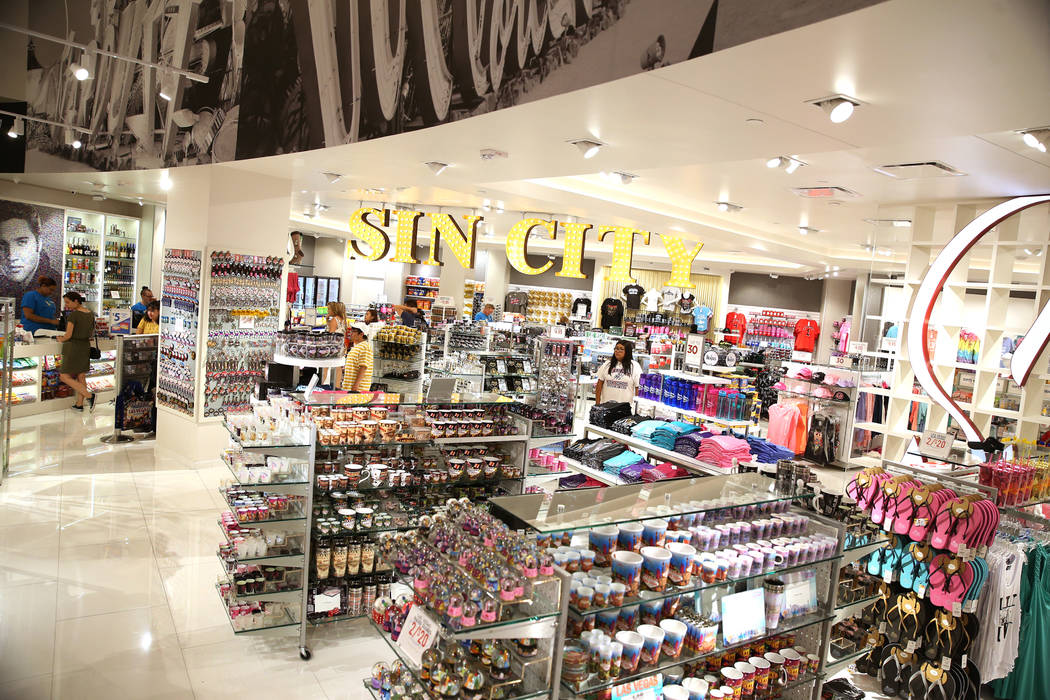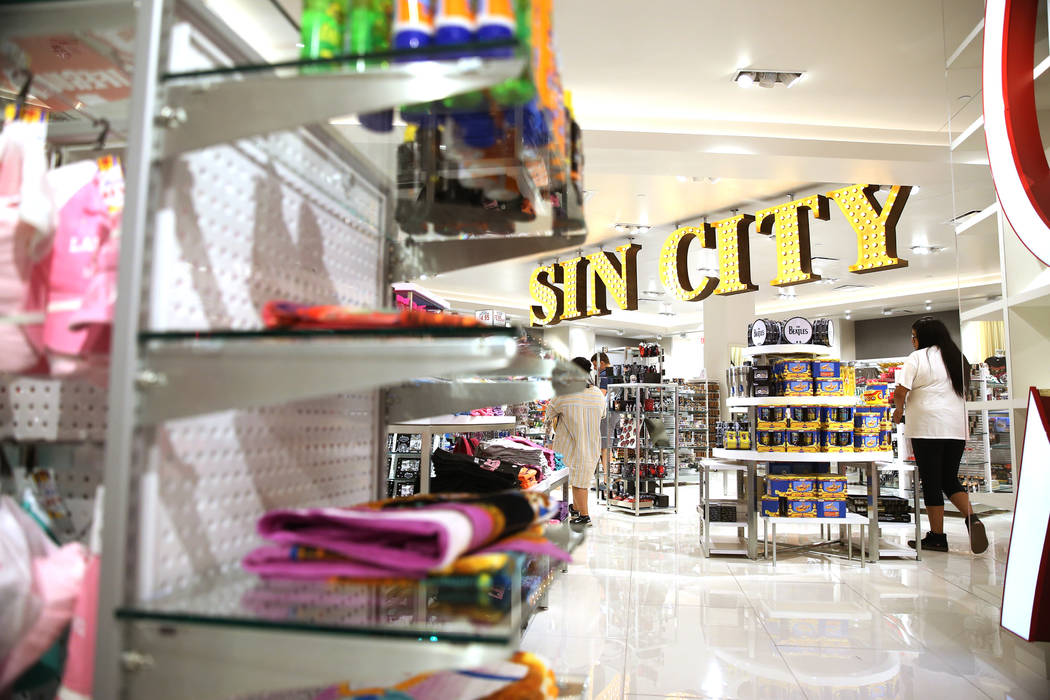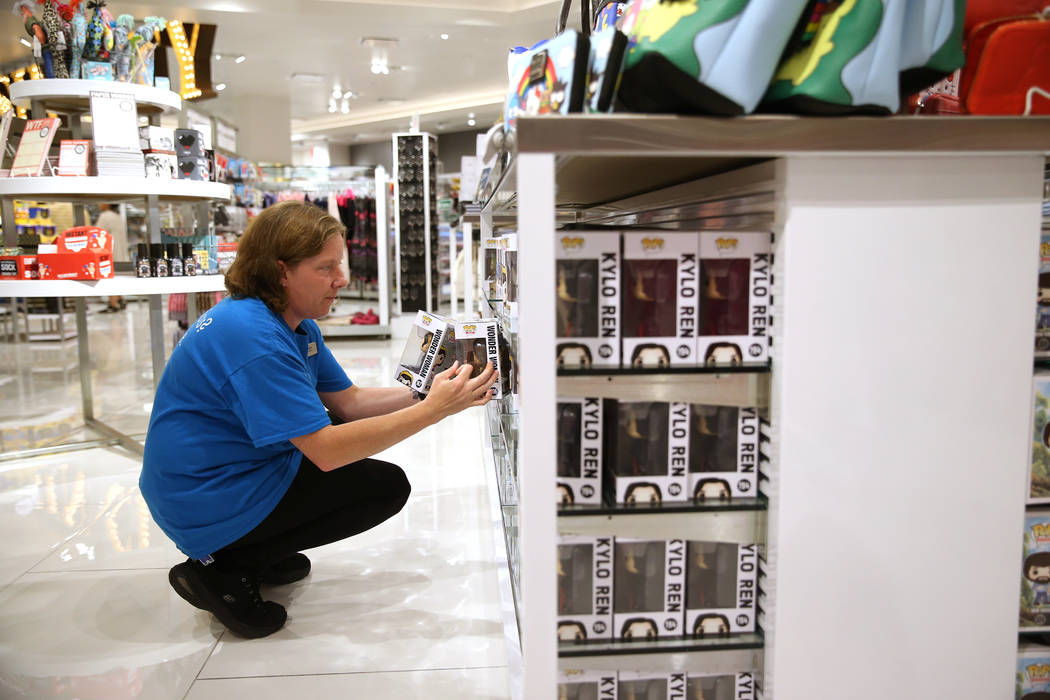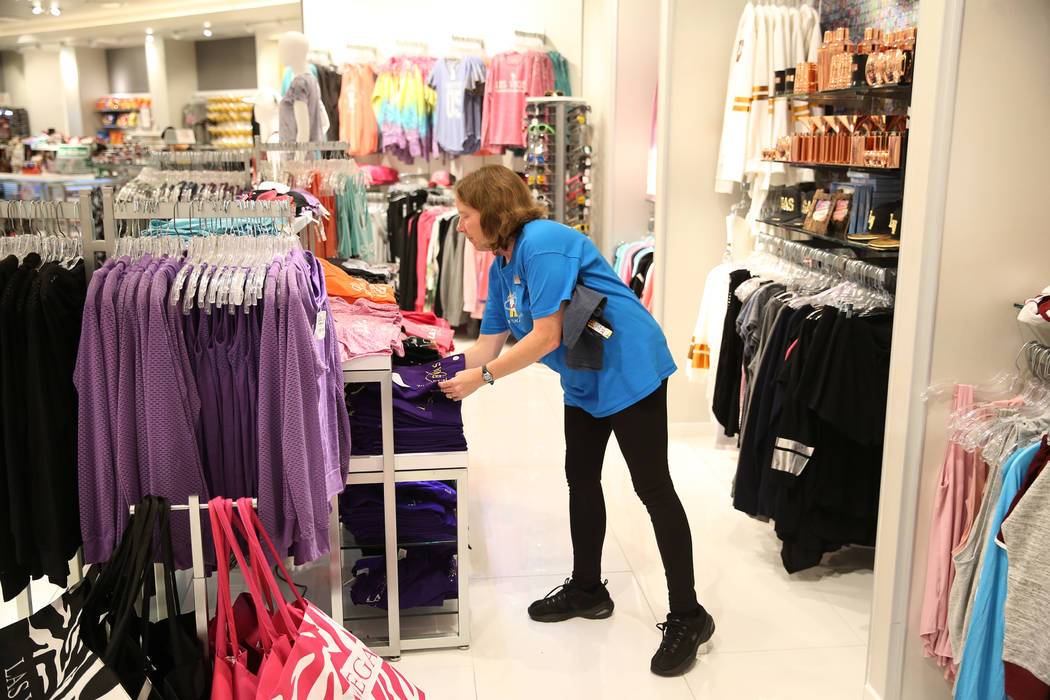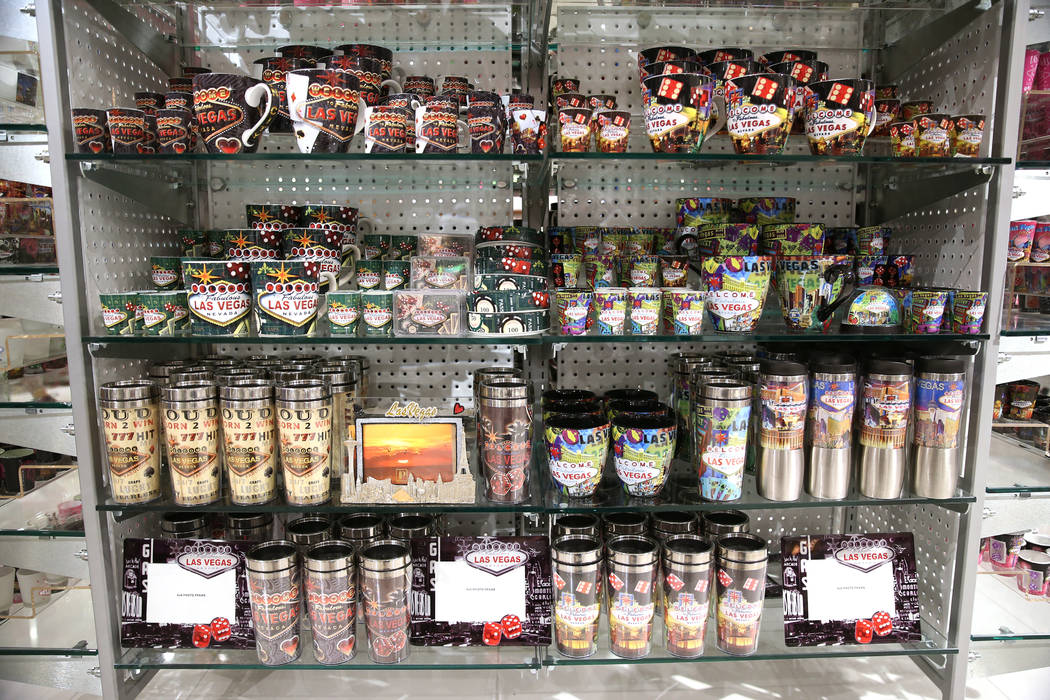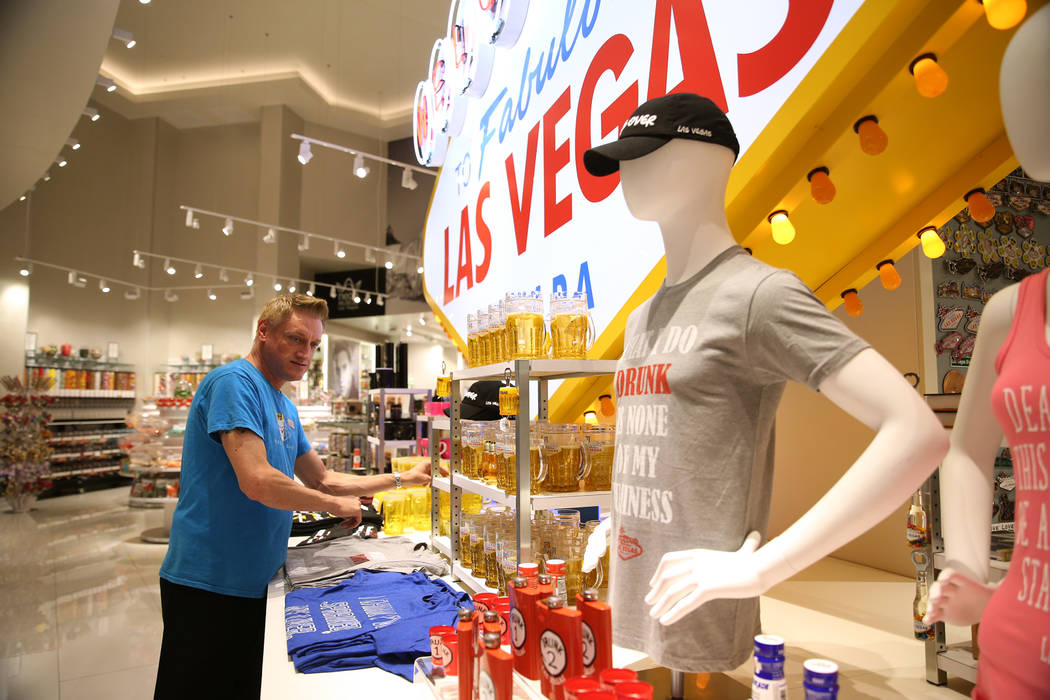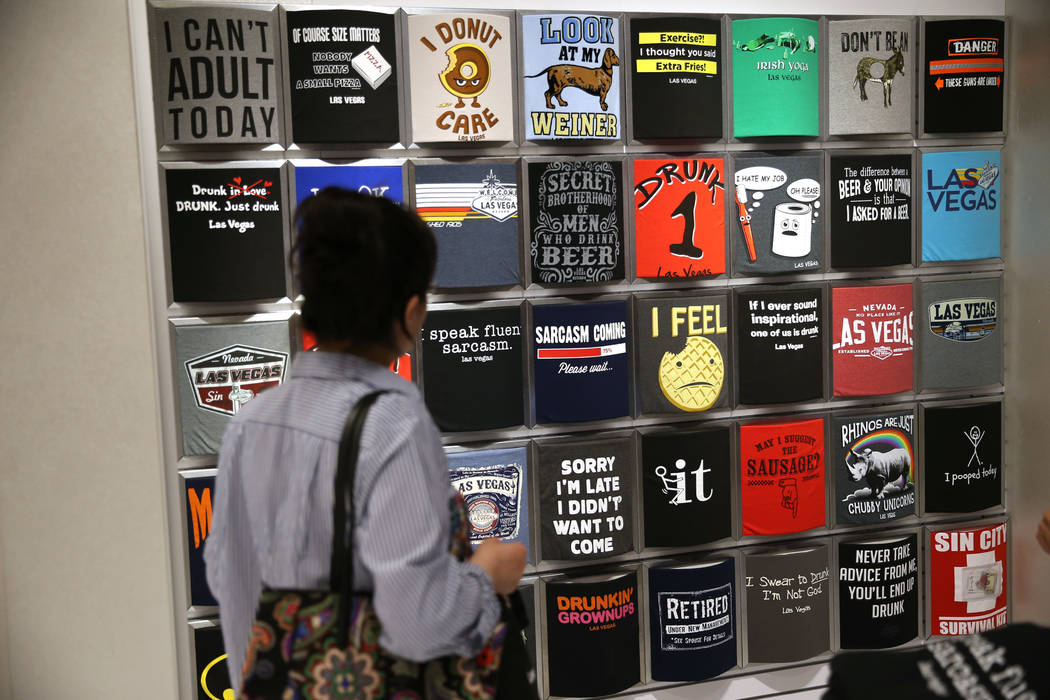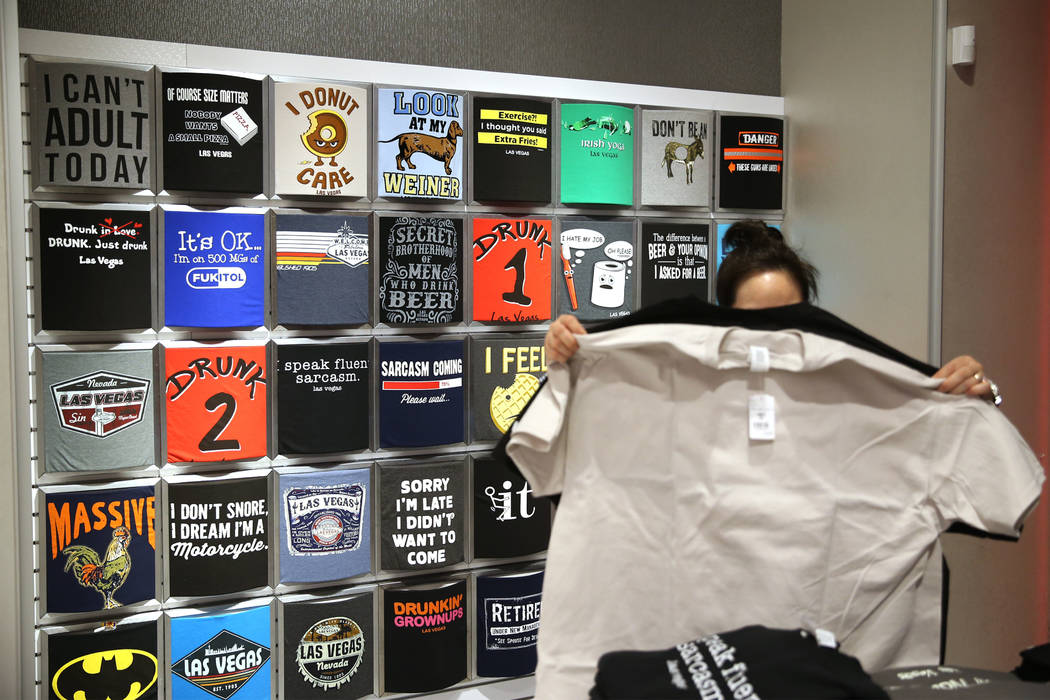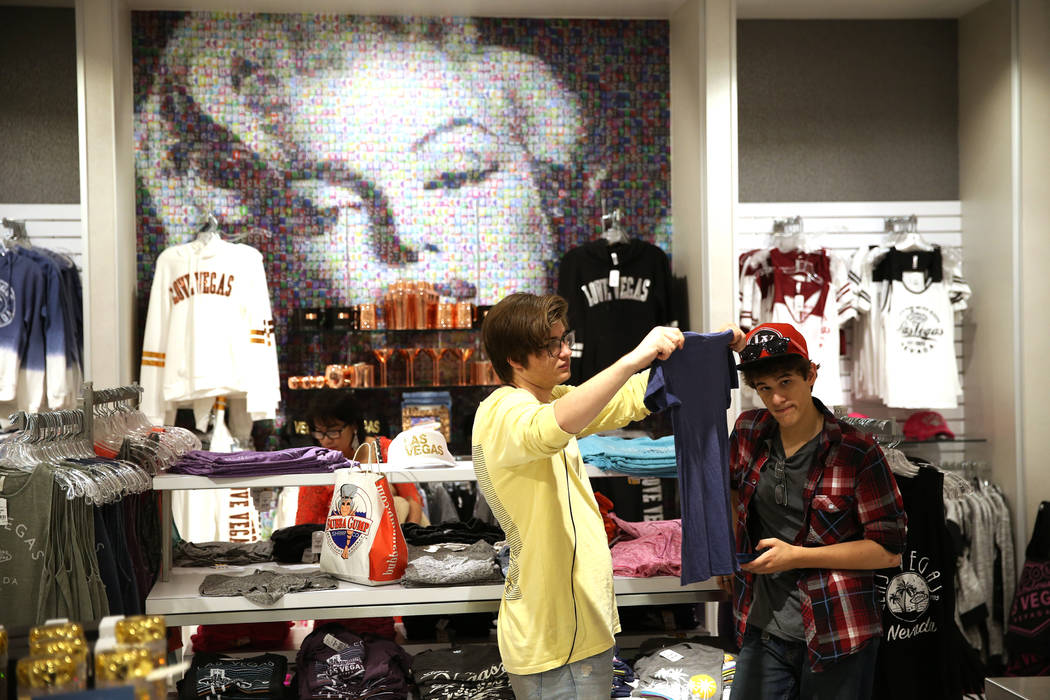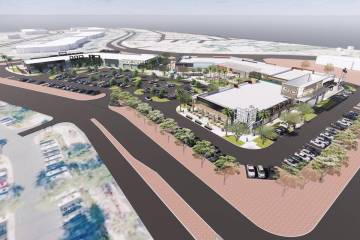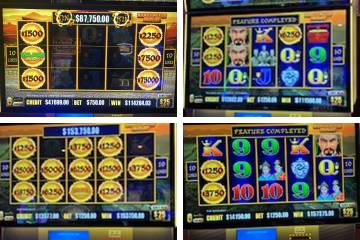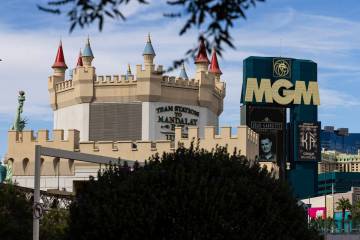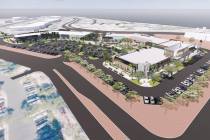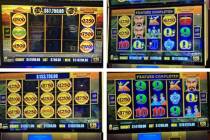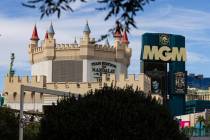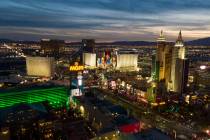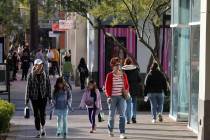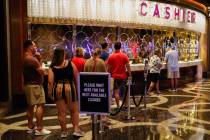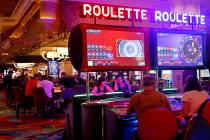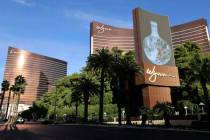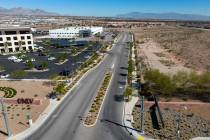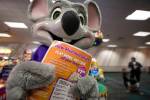Las Vegas company spreading its wings in airport, resort retail
Gift stores with Las Vegas-branded cups and shot glasses.
Candy stores with jelly beans and chocolate wasabi peas.
America-themed stores with T-shirts of the president atop a tank with a gun barrel bearing the inscription, “You’re fired.”
These businesses may vary wildly, but they all share one thing — the same Las Vegas-based owner and operator.
In almost 60 years since the company began, Marshall Retail Group has evolved from a local women’s clothing store to a multi-pronged company with 40 store brands that is becoming a growing player in the world of airport and resort retail.
“It’s hard enough for one category,” CEO Michael Wilkins said. “Let alone 40.”
Those brands range widely and include candy stores, clothiers and gift shops. Marshall Retail operates 165 stores across airports, resorts and shopping centers in 15 states.
It has nearly 1,200 employees nationwide and 20 million customers a year.
While growing, Marshall Retail still lags industry leader Hudson Group, which operated 1,009 stores in 88 locations as of June 30. About 90 percent of those locations were at airports.
Marshall Retail has existed through at least eight recessions and 12 presidents. It began life in 1955 as Sara’s, an out-of-home seller of defective cashmere sweaters to cocktail waitresses and hoteliers’ wives, according to the obituary for namesake Sara Saltzman.
Half of the store at 520 S. Fifth St. was Sara’s Clothing. The other half was a relative’s chiropractic office.
The company opened three stores on Las Vegas Boulevard, then opened its first hotel shop in the Sahara in 1964, according to a UNLV oral history project.
By the time Wilkins joined, in 2002, the company had grown from eight stores to about 40.
In January 2003, the company was sold to a New York private equity firm, ICV. Under ICV, the renamed Marshall Retail Group expanded outside of Las Vegas, opening 11 stores in Atlantic City.
Marshall Retail landed its first airport store outside Nevada in September 2012 at Newark Liberty International. A year later, Marshall Retail won a bid to operate at Vancouver International Airport.
In February 2014, Marshall Retail bought Olde Mill Co. and added 30 stores and five airports to the portfolio.
Today, 40 percent of Marshall’s stores are in airports.
At Denver International Airport, Marshall Retail operates a Tumi luggage store, a clothing shop and three convenience stores.
At McCarran International Airport, stores named Marshall Rousso, Welcome to Las Vegas and America! all belong to the Marshall Retail portfolio, along with another Tumi store and a Harley-Davidson apparel store.
“Marshall appears to have developed both the operational experience and relationships with host operators allowing them to take advantage of these niche retail opportunities,” said Nick Egelanian of SiteWorks, a retail real estate consulting firm.
Cheryl Nashir, director of revenue development and management for San Francisco International Airport, said a marketplace inside SFO has done over 60 percent more sales since Marshall Retail took over.
The Marshall Retail store, District Marketplace, combined four once-separate store spaces — including a former newsstand, clothing store and sunglasses store.
The move risked less rent revenue for the airport, and the mix of inventory has increased business as customers who go in for a souvenir also buy food, Nashir said.
Over the years, Marshall Retail has had opportunities for other nontraditional retail venues, CEO Wilkins said.
The company has turned down space on cruise lines, for example, because cruises come with their own logistical challenges. Wilkins and his team have decided to focus on resorts and airports.
“We know what we’re good at,” Wilkins said.
Inventory investment
The company designs and develops products and works with manufacturers. A team of merchants goes into a new city or region to learn the market. Members also attend product shows throughout the country to learn of new trends.
The product-development process can take months and has many phases, from initial concept to sampling to final product.
The company holds licenses for the Harley-Davidson, Tumi, Swarovski and Kiehl’s stores it operates.
Inside the company’s headquarters and distribution center near Sunset Road and Valley View Boulevard, Marshall Retail moves about 14 million items in and out in a day. Those items range in size from keychains to 6-foot cutouts of the president.
The center has 25-foot-tall racks and two shifts for its 58 employees. Marshall Retail has about 650 employees in Nevada, about 76 percent of whom work in the stores. Of the 1,200 employees nationwide, about 86 percent work in the stores.
Marshall Retail’s inventory system ships goods to shelves across the country by the next day to avoid missed sales. Executives can check updated inventory levels by the hour.
A beefed-up inventory system and larger headquarters were part of the goal for Brentwood Associates, a Los Angeles-based private equity group that bought Marshall Retail from ICV in August 2014 for an undisclosed sum.
Brentwood partner Rahul Aggarwal said the investment into back-office operations has proved a good choice at a time when big-name retailers face the consequences of having too many stores.
“We built a back end that was sophisticated — but it’s what you need to do in order to grow,” Aggarwal said. “That sometimes means more than more locations.”
Marshall Retail stores can sometimes end up close to one another, but that large portfolio built over the years means customers don’t know the candy store, clothier and gift shop are all part of the same company.
A portfolio like that makes the company a competitor when it comes to airport requests for proposals, Aggarwal said. Marshall Retail can meet most demands for an available retail space in an airport.
Plus, a company like Marshall Retail doesn’t have to worry about online retail competition. Its customers buy items they need immediately or souvenirs and gifts they like on impulse, he said.
“We’re seeing nice growth in the business,” Aggarwal said.
About 55 percent of the company’s sales include gift items, sundries, souvenirs and candy. The rest is licensed brands like Tumi and the business that started it all: fashion.
“We’re a national company now,” Wilkins said. “It’s incredibly rewarding to see our brand that started from humble beginnings.”
Contact Wade Tyler Millward at 702-383-4602 or wmillward@reviewjournal.com. Follow @wademillward on Twitter.
Improved retail options helping airports
As Marshall Retail grows, so does the importance of retail in helping the bottom line of the travel industry.
Sidney Woods, senior marketing director for airport retail program manager MarketPlace Development, said retail has grown in importance for airports over the past 20 years.
Celebrity-chef-helmed restaurants and higher-end inventory have helped capture more dollars from wealthier business travelers and vacationers.
A varied and impressive retail mix has also helped with fliers' impressions of airports, Woods said. Security measures adopted since the Sept. 11, 2001, terrorist attacks have added to the amount of time people stay inside airports. Retail has helped keep them occupied and entertained.
"We're being ambassadors for the airport," Woods said.
Kelli Hollinger, director of the Center for Retailing Studies at Texas A&M University, said travelers tend to have money and a willingness to spend.
A variety of stores for travelers to see while waiting for a flight makes companies with large portfolios of store concepts, like Marshall Retail, attractive for travel retail.
"Whether fair or not, airports are lumped into a negative customer experience," Hollinger said. "When airports can be seen as not a burden for travelers, but as an exciting place — that's a win."
Wade Tyler Millward



